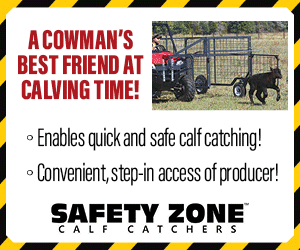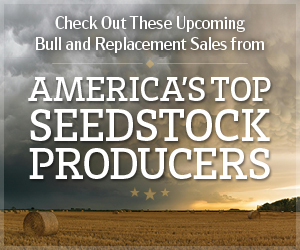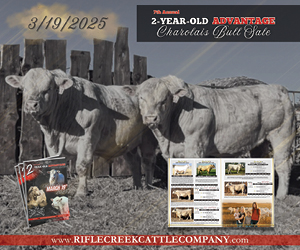Editor: We are proud to offer each of these organizations a platform to reach out in their own words. We at WR thank all those who give of themselves to further improve and protect our industry, and we urge you, dear reader, to participate in any way you can.Y
United States Cattlemen’s Association
2017 In Review: The Year of Partnerships in Action
To say 2017 was a wild ride may still be a bit of an understatement. This year, the United States Cattlemen’s Association (USCA) was at the forefront of many important industry discussions, including: the effort to delay the Electronic Logging Devices (ELD) mandate for livestock and insect haulers, halting the importation of Brazilian beef, reestablishing a country-of-origin labeling program, advocating for needed changes to the Mandatory Price Reporting law, identifying pressure points within NAFTA that cause pain for U.S. cattle producers and proposing solutions, stating the need for appropriate management of our burgeoning wild horse and burro population, and much more.
This year was a popular year to get involved, as membership numbers rose and participation on our policy committees expanded. With that increase in participation, we saw a direct relation to what we were able to accomplish on Capitol Hill.
In June, over 30 producers representing Arizona, Indiana, Iowa, Kansas, Montana, Nevada, North Dakota, Ohio, South Dakota and Texas joined us on our Washington, D.C. Fly-In to meet with Congress and the Administration and discuss high-priority issue areas. We sent a strong message to leadership in USDA Animal and Plant Health Inspection Service (APHIS) and Food Safety Inspection Service (FSIS) that Brazil is a bad actor in the global marketplace and we should not be accepting beef from a country with known vulnerability to Foot-and-Mouth (FMD) disease. It was announced later that month that the U.S. would no longer accept shipments of fresh beef from Brazil, a huge victory for U.S. cattle producers and a direct result of our trip to Washington, D.C.
Outreach was a major focus for USCA in 2017. In July, USCA staff embarked on a week-long road tour, meeting with East Coast producers in New York, New Jersey, Pennsylvania and Delaware. With stops at sale barns in Canandaigua, Finger Lakes and Chatham, our staff discussed our work and priorities for the year. In September, USCA hosted the second annual Cattle Producer’s Forum in Billings, Montana. The Forum serves as a platform for innovative discussions with stakeholders from all sectors of the industry. The two-day event allowed attendees to hear from representatives of USDA FSIS, APHIS, and AMS, the U.S. Department of Commerce, and the Montana State Animal Health Veterinarian. Topics discussed included: Trade Under the Next Administration, Innovative Conservation Practices, The Next Big Thing is Already Here, Sustainable Antibiotic Use in Livestock and a crowd-favorite, Behind the Retail Counter with Tyson Foods. If you missed this year’s event, be sure to keep an eye out for next year’s “Save the Date”!
As we close out 2017, one of our main priorities is to find relief in the ELD mandate for all transporters of livestock and insects. USCA has been pushing this issue from the start and we are working both legislatively and through the Administration to delay the implementation of the ELD mandate so that we may work with the Federal Motor Carrier Safety Administration (FMCSA) to address the strict Hours-of-Service rules that livestock haulers must abide by. By delaying the implementation of the mandate, we can use that time to work on viable solutions for the industry, such as utilizing the sleeper berth to break up the required off-duty time. USCA also filed a petition with FMCSA calling for a full exemption from the mandate for livestock and insect haulers. The deadline to comment on that proposed rule closed on November 30th and we are now awaiting the final determination from FMCSA.
USCA’s main policy priority is strengthening the bottom line of the U.S. cattle producer. From working towards fair and balanced trade agreements, to closing a loophole that allows meatpackers to comingle domestic and imported product and claim the U.S.A. label, to protecting the health of the domestic herd, everything we do is to make your everyday life easier and your profits stronger. We are well-positioned on Capitol Hill to ensure that our message is heard loud and clear by lawmakers. In this year of Presidential transition, we’ve built strong relationships with leaders at the USDA, Department of Interior and other agencies, in addition to continuing to build our relationships with Congressional offices. The next four years look bright for the U.S. cattle industry, if we can continue the momentum we’ve built this year.
As a grassroots organization, we depend on producers like YOU to serve as leaders of our industry. Thank you for being involved and thank you for contributing to our overall success. We witnessed many ‘partnerships in action’ this year and look forward to continuing those successes into 2018 and beyond.
For the most up-to-date news on the U.S. cattle industry, make sure you’re following USCA on Facebook and Twitter (@uscattlemens).
National Cattlemen’s Beef Association
2017 – An Eventful Year
Craig Uden, NCBA President
2017 has certainly been an eventful year in Washington, DC, for America’s cattle and beef industry. A new president and Administration swept into town last January and much of the partisan gridlock that marked most of the previous decade was quickly broken – especially on the regulatory front. Of course, Washington hasn’t solved every challenge facing our industry yet – international trade and access to foreign markets has been a mixed bag, and many legislative battles remain ahead on Capitol Hill, such as comprehensive tax reform and the 2018 Farm Bill. More on those issues in a bit, but let’s start with the area where we’ve seen the most progress so far: the regulatory front.
• BLM 2.0 Rule Repealed. After the U.S. House and Senate passed a Resolution of Disapproval regarding President Obama’s BLM Planning 2.0 rule, President Trump signed it into law on March 27. The 2.0 rule would have forced the Bureau of Land Management to prioritize social and environmental change over ensuring the multiple use of public lands.
• Waters of the United States Rule Rescinded. President Trump on Feb. 28 signed an executive order that triggered a reconsideration of the Obama-era WOTUS rule. EPA then took action on June 26 to officially rescind the flawed rule. While the rule isn’t officially dead yet, NCBA will continue to work to make sure that cattle producers finally get the sanity and clarity they need on land-use policy.
• GIPSA Rule Withdrawn. On Oct. 17, USDA announced that it would completely withdraw its controversial rule once and for all. NCBA has led the fight against the rule for years, pointing out that the rule would effectively kill our industry’s valued-added programs and be a boon for trial lawyers.
Progress on international trade has been more of a challenge, on the other hand. Soon after taking office, President Trump officially withdrew the United States from the proposed Trans Pacific Partnership (TPP), which would have put American producers on equal footing with our Australian competitors in Japan. Trump also triggered the renegotiation of the North American Free Trade Agreement and threatened to pull out of the Korea-US Free Trade Agreement (KORUS.)
On the brighter side, the Trump Administration successfully helped reopen the Chinese market to U.S.-produced beef for the first time since late 2003, and NCBA was in Beijing with Ag Secretary Sonny Perdue and US Ambassador to China Terry Branstad to welcome the first shipments of US beef to the mainland.
And, of course, there are the many unfinished battles remaining on Capitol Hill. NCBA is once again leading the charge to fully and permanently repeal the death tax, as well as maintaining positive provisions in the tax code, such as stepped-up basis, interest deductions, and cash accounting.
The US House passed its tax reform package on Nov. 16. The good news is the legislation included a full repeal of the death tax and many other provisions beneficial to cattle producers, but it also included limits on interest deductibility, which could cause major headaches for some segments of our industry. The Senate quickly followed with its own legislation and NCBA remains deeply involved on Capitol Hill as final legislation is hammered out.
Another significant item that remains on Congress’ to-do list is legislation to modernize the Endangered Species Act. Specifically, NCBA is lobbying to require recovery plans at the time of listing that include population objectives, the implementation of measurable benchmarks that trigger an automatic delisting once population objectives have been met, and encouraging voluntary pre-listing conservation through the states.
And of course, looming just on the horizon is the 2018 Farm Bill. Throughout 2017, NCBA has been meeting with elected officials across Capitol Hill, lobbying for the Farm Bill to include a strong research title to make sure that cattle producers remain as efficient and competitive as possible. The Farm Bill also needs a strong conservation title to protect programs like the Environmental Quality Incentives Program (EQIP.) Finally, the bill should also guarantee a free, open, and private marketplace, as well as a robust and preventative animal-health program – including an adequate Food-and-Mouth Disease (FMD) vaccine bank to respond to any potential outbreaks.
Of course, there are many other issues of importance to cattle producers that will be considered in Washington in 2018 – issues like Electronic Logging Devices (ELDs), the Resource Conservation and Recovery Act (RCRA), and immigration – just to name a few. Our industry has made some real gains in 2017, and we have a window of opportunity in which to accomplish a great deal more. That said, it’s never clear just how long a window of opportunity is going to remain open before it slams shut, so we all need to work together to achieve as many gains as possible while we can.
R-CALF USA
2017 Update and a Glimpse into 2018
With a new Administration and Congress, 2017 promised to be a new dawn for America’s ranchers. The swamp would be drained – meaning the globalists who long chastised independent ranchers for saying we should look out for America first would be removed from their decision-making roles in Washington, D.C.
Well . . . Silly us. We were wrong.
Early on we told President Trump that beef-eating Americans could not follow his “Buy American” directive because the swamp had repealed mandatory Country of Origin Labeling (COOL) for beef. Consumers, therefore, couldn’t tell a Brazilian steak from an American steak. Soon, the reinstatement of COOL was added to the President’s list of objectives. We were elated.
The swamp immediately revolted and pressured the President to back-off his COOL mandate so multinational packers could continue undercutting American ranchers by importing cheaper, undifferentiated beef and passing it off to unsuspecting consumers as identical to USA beef.
But we didn’t stop. In June, we filed a lawsuit against the Agriculture Secretary alleging he is unlawfully allowing multinational packers to remove country of origin labels from imported beef even if all the packers do is unwrap and then rewrap the foreign beef. This unlawful practice reduces demand and price for USA cattle. Our case is pending.
Also in June, a federal court granted us an injunction against the Beef Checkoff program. The court ruled it unconstitutional for the USDA to compel ranchers to subsidize the private speech of a private state beef council. For the first time, Montana ranchers can choose whether their checkoff dollars can be used by a state beef council to promote the message that all beef is the same, regardless of whether it was born and raised in Montana, Manitoba or Mazatlán – a message most independent ranchers strongly disapprove.
In one fell swoop, our Agriculture Secretary erased years of work to rebalance the economic disparity between hundreds of thousands of independent cattle ranchers and the four giant packers that control 85 percent of the fed cattle market. The Secretary cancelled the Farmers Fair Practices Rules that empowered ranchers to protect themselves from retaliation, fraud and other anti-competitive practices by the packers. Without these rules, packers will continue eliminating independent farmer feeders one feeder at a time. In just the past two decades, we’ve lost 73 percent of our nation’s farmer feeders.
The bright spot for ranchers does not come from the USDA. It comes from our new Trade Ambassador who is following through with the President’s promise to renegotiate the North American Free Trade Agreement (NAFTA). Finally, we have a President who understands that NAFTA hurts the U.S. cattle industry because every time we sell Canada and Mexico $2 billion worth of cattle, beef, beef variety meats and processed beef, they turn around and sell us $4 billion worth of the same products. It doesn’t take a wizard to realize that Canada and Mexico will keep playing that game until we quit.
Our single greatest achievement is that we continue blocking the multinational packers’ from vertically integrating, or “chickenizing,” our cattle industry. We have so far stopped them from capturing control of the live cattle supply chain away from independent ranchers. But, they are now mobilizing in a very creative way to do so in 2018.
In 2018 the new term for cattle industry integration and chickenization will be the “Global Roundtable for Sustainable Beef.” Under this warm and fuzzy label, about 100 of the world’s largest packers and other multinational corporations including Bayer, Costco and Walmart are teaming up with the World Wildlife Fund to begin dictating the terms of production to independent cattle ranchers.
The first requirement will be the electronic identification of every animal and every rancher will bear the cost of hiring a third-party auditor to certify they are following the corporations’ production standards. This will be voluntary at first but if you choose not to participate, then you won’t have access to 85 percent of the market that is controlled by the participating packers. This massive, corporate effort to control the marketplace is collusion at its worst.
R-CALF USA certainly has its work cut out for it. To learn more, go to www.r-calfusa.com or visit us on Facebook.





